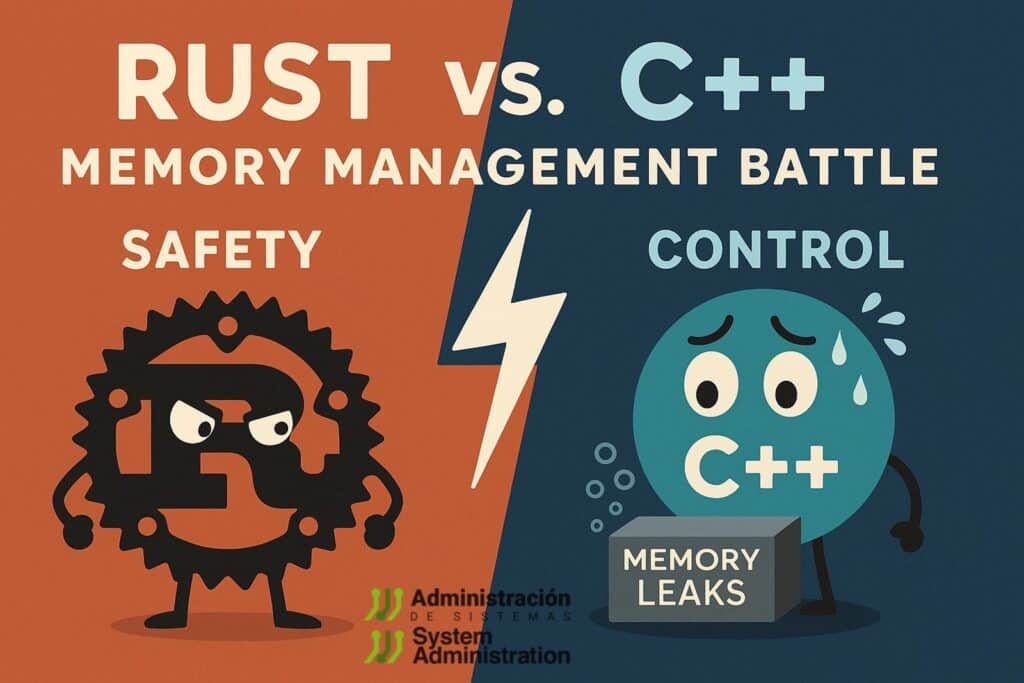When satire meets debugging: A C++ developer trolls the Rust community — with intentional memory leaks
In the ongoing ideological and technical tug-of-war between Rust and C++, a new entry has surfaced — not in the form of an academic paper, but as a tongue-in-cheek tutorial provocatively titled: “Rust Devs Think We’re Hopeless; Let’s Prove Them Wrong (with C++ Memory Leaks).” Authored by software engineer Mamadou Babaei, the piece blends comedy, code, and commentary into what could be considered a love letter to old-school C++… with a few dangerous pointers left dangling.
A Defiant Manifesto with new and No delete
Babaei’s article is far from your typical dev blog post. It opens with biting sarcasm: “To Rustaceans, every line of C++ is like Russian Roulette — except all six chambers are loaded with undefined behavior.” Rather than rebut with a formal treatise, Babaei takes a different route: he demonstrates an actual C++ program that leaks memory, on purpose.
The sample code simulates password generation in a loop using new without delete, while actively inviting readers to “enjoy the danger.” For those who need accountability, he also provides a version using Microsoft’s _CrtDumpMemoryLeaks() to track heap usage in Visual Studio debug mode.
It’s educational, hilarious, and oddly nostalgic — especially for developers who cut their teeth on raw pointers and segmentation faults.
Culture Clash: Safety vs. Control
What Babaei’s article illustrates — albeit playfully — is the philosophical divide between C++ and Rust communities. Where Rust prioritizes compile-time safety and ownership models, C++ maintains its commitment to performance, control, and minimal abstraction.
Rust developers often tout their borrow checker as a revolutionary guardrail against memory bugs, and they’re right — but Babaei argues there’s still merit in the C++ ethos: knowing your tools intimately and accepting responsibility for their power.
The Community Reacts
The article quickly gained traction on platforms like Reddit, Hacker News, and Dev.to. Some readers praised it as a refreshing, humorous reminder of C++’s enduring relevance. Others called it a “perfect example of why Rust was invented.”
Many C++ veterans empathized with the sentiment. “We didn’t have borrow checkers — we had Valgrind and a sixth sense,” wrote one commenter. Others noted the reality: C++ still powers critical infrastructure, from real-time trading systems to embedded firmware, where Rust’s ecosystem isn’t yet mature enough.
More Than Just a Meme
Beyond the meme-worthy sarcasm lies a deeper message: C++ is not going anywhere. It’s still evolving (see: C++23 and C++26 proposals), still used in performance-critical applications, and still valued by developers who prefer fine-grained control over automatic safeguards.
What’s more, Babaei’s tutorial doubles as a learning tool — not only does it walk readers through common memory management pitfalls, it also introduces best practices for tracking leaks, using DEBUG_NEW and Microsoft’s CRT leak detector.
Satire with Substance
Babaei manages to inject a playful jab at modern programming trends while still providing technical insight. His code comes with an ELI5 (“Explain Like I’m Five”) breakdown, comparing memory tracking to LEGO bricks being watched by a magical camera.
His conclusion? Developers don’t need a compiler nanny. They need awareness, discipline, and maybe — just maybe — a good sense of humor.
Takeaways
- Rust’s safety guarantees are real, valuable, and transformative — but C++ still offers unmatched control for experienced developers.
- Memory leaks remain a core challenge in C++ — but they’re also teachable moments.
- Humor can be a powerful educational tool in a community often weighed down by gatekeeping and flame wars.
Final Thought: You don’t have to pick a side in the Rust vs. C++ debate. Just know what you’re building — and why. And maybe, once in a while, enjoy the madness of a raw pointer left unfreed… for science.

